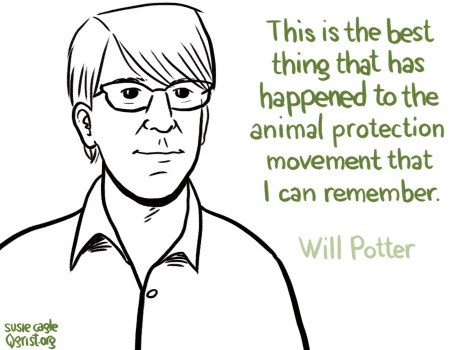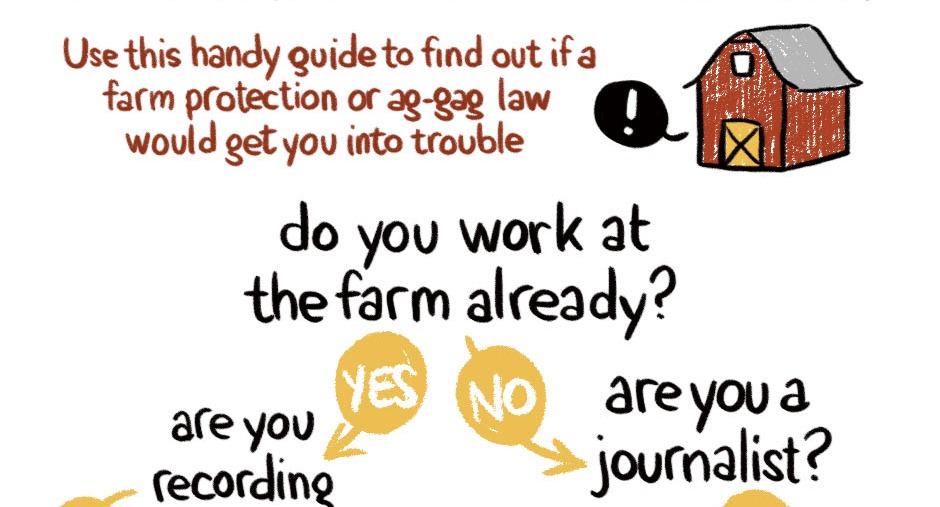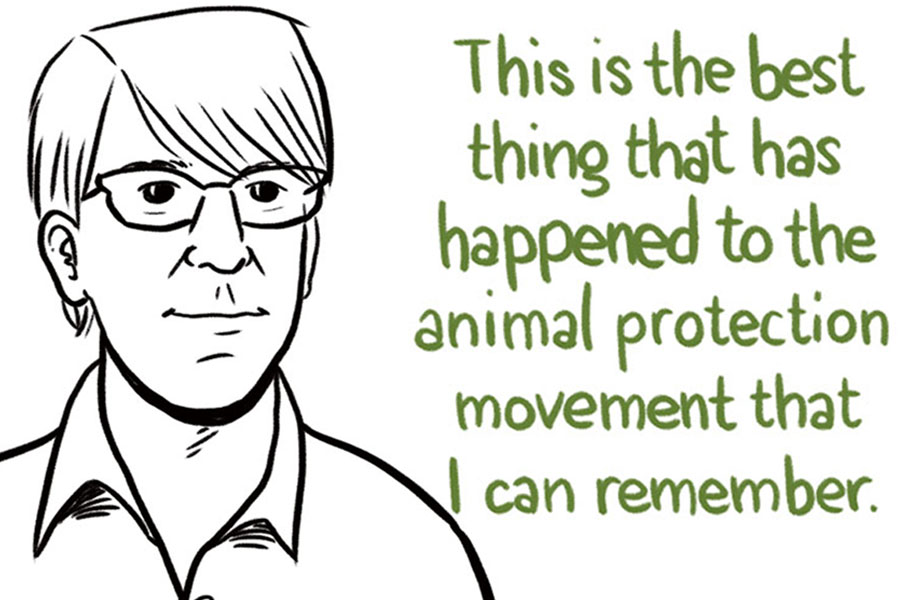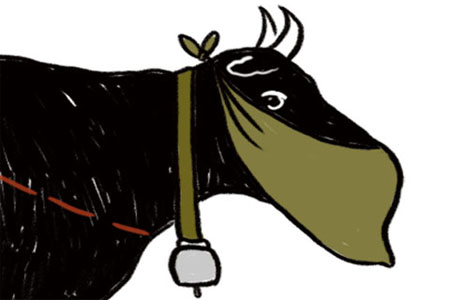A slew of bills currently in front of state legislatures around the country aims to make it a crime to document what goes on behind slaughterhouse doors. But these bills themselves may be a blessing in disguise for animal rights activists.
Take the example of Wyoming, where a proposed bill recently dropped like a pesticide-poisoned honeybee. The bill would have made any recording illegal without permission from the facility owner, with a penalty of six months in jail and a $750 fine. Pushed by a Republican rancher, Wyoming House Bill 126 seemed set to pass the state senate.
That is, until “PETA had Bob Barker come out against it and it got a lot of media attention,” Green is the New Red journalist Will Potter explains. “Bob Barker saves the day.”
 Potter and activist Andy Stepanian have been two of the most outspoken voices against ag-gag bills. When several bills made their way to state legislatures last year, “the threat was clear and real,” Potter says. A domino effect seemed impending: If farm-friendly legislators could push these bills through in Missouri and Utah, what might happen nationwide?
Potter and activist Andy Stepanian have been two of the most outspoken voices against ag-gag bills. When several bills made their way to state legislatures last year, “the threat was clear and real,” Potter says. A domino effect seemed impending: If farm-friendly legislators could push these bills through in Missouri and Utah, what might happen nationwide?
“Each one of these pieces of ‘model legislation’ is seeing just how far they could push the envelope,” says Stepanian. “‘We have case law on record in this state, why don’t you do the same thing in your state?’ In time it chips away at our democratic freedoms.”
But ultimately — oddly enough — both Potter and Stepanian aren’t worried. Sure, if they passed, these laws would be a gut shot to the animal protection movement. But in becoming a national news story, ag-gags may have backfired instead. Every time a publication covers farm protection proposals, it uses the horrible images of abuse that investigators have dug up. That has made these stories a great way for activists to spread their message. And it has made Potter and Stepanian downright optimistic.

Yeah, seriously.
“It’s unbelievable how this issue has brought together so many different groups: unions, civil liberties groups, environmentalists, animal protection groups. And all those people are in the same rooms, signing on to the same letters, and voicing the same concerns,” says Potter.
“We have to make sure we don’t let ourselves get bogged down with constantly focusing on the fact that we’re being repressed. They’re repressing us because we’re effective,” says Stepanian.

Recently an ag-gag bill died in California, while bills in Arkansas and Tennessee inched closer to approval. No matter, according to Potter and Stepanian — activists still won. In mobilizing to address a common enemy, activists have forged unlikely but powerful alliances.
“There’s no way these bills are going to stand up to public scrutiny or legal challenges. And in the meantime, I think all movements seem to be responding very forcefully rather than being afraid of this,” says Potter. “Ag-gag bills have already backfired in terms of the massive outcry of public opposition. And if they go through I think they’ll also backfire in motivating people to do undercover investigations on their own, motivating people to get active in a wide variety of ways, and really invigorating a movement that feels like they’re being censored.”
With so many ag-gags defeated in recent years, activists have reason to be optimistic. But even in some states that have defeated ag-gags, the bills keep returning for another shot. In rallying the opposition, these bills may be the biggest thing to happen to the animal protection movement in recent memory, but they may also prove to be the movement’s biggest test.



